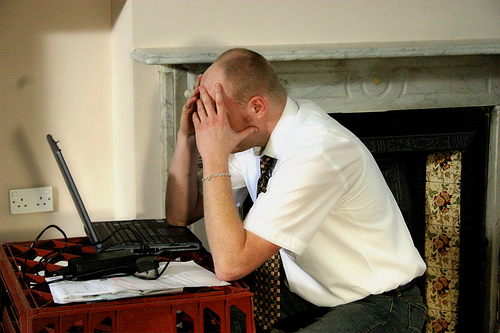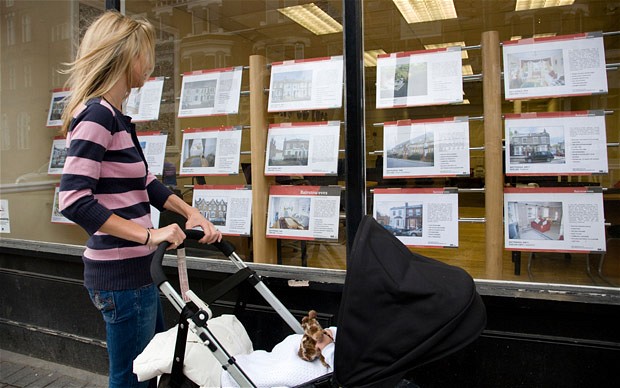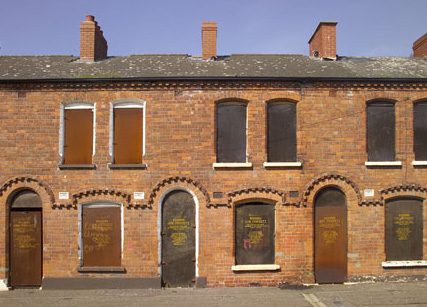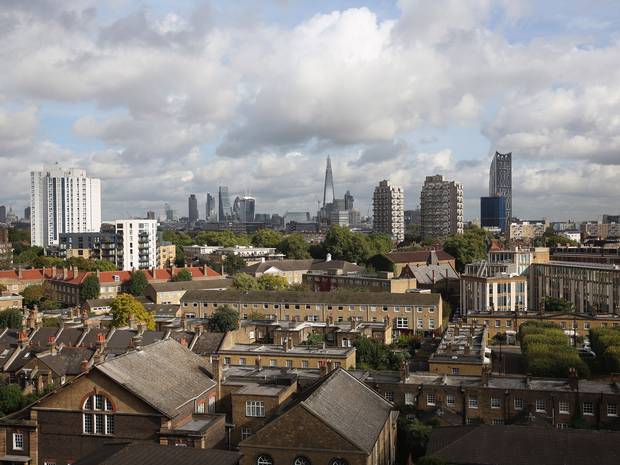541: Punitive Tax on Landlords by a Tory Government of all things
07-17-2015

The Chancellor slashed the tax relief that landlords in the top tax brackets receive on their mortgage interest payments, cutting it from the higher income tax bands, 40% and 45%, to 20% by April 2020.
Transfer to Company Structure: If a private landlord was to transfer one or more properties into a company structure, known as incorporating a business, the total tax rate would be greatly reduced. This is because a company is paying tax on the actual profit and therefore the rate does not fluctuate wildly. If the profit reduces, so does the tax. However – henceforth starting in 2017 - if the rental property is run privately, in probably many landlord scenarios because one no longer gets full tax relief for your expenses, you would pay tax even if there is no profit – that means a potentially enormous effective rates of tax – often well over 100% with all profits on a buy to let portfolio going to the government. By 2020, as an example when interest rates are likely to be higher, the levy on a property worth £100,000 to a private landlord in a higher tax bracket - with an 85% loan-to-value mortgage and a mortgage interest rate of 5pc - would be 106%. Who would want to be in t he business – in fact, its technically not a business it’s a liability about to go bankrupt. In this conventional scenario- the resulting tax would mean suffering an annual loss of £100.
he business – in fact, its technically not a business it’s a liability about to go bankrupt. In this conventional scenario- the resulting tax would mean suffering an annual loss of £100.
Losses: However, if the same property were run as a business "within a company", the landlord would pay a tax rate of just 49.2% and achieve a minimal profit of £888. That’s £1000 difference. However, if mortgage rates went up further, the contrast becomes far more severe. If interest rates hit 6%, a property owner operating under a business umbrella would again pay 49.2%, but the private landlord would pay 186.7% tax, and make an annual loss of £780. If interest rates rose above 6%, the landlord could well face bankruptcy in the medium term.
Other Taxes: Other taxes such as stamp duty and capital gains tax would also affect profits from the rental business, especially for a landlord with only a handful of properties. If the owner is a sole trader, he would pay stamp duty again on the "incorporation of the business" based on cost of the property. However, if the owner is in business with a partner, they could enjoy some stamp duty relief. If the property portfolio was within a business, owning more than six properties, it would be classified as a “commercial property business” and they will only pay a flat 4pc stamp duty on the sale.
Capital Gains As Well: The big tax difference is capital gains tax when a company finally co mes to sell and dividend the profit to the owner at 49% compared to 28% for a private landlord - but at least the property owner would know what your effective rate of tax was, and if you are reliant on the income rather than the appreciation of price, it is could be a hit worth taking. Although incorporating your business helps you guarantee your monthly tax bill, it is not a magic solution. Tax is only one consideration when forming a company. For example:
mes to sell and dividend the profit to the owner at 49% compared to 28% for a private landlord - but at least the property owner would know what your effective rate of tax was, and if you are reliant on the income rather than the appreciation of price, it is could be a hit worth taking. Although incorporating your business helps you guarantee your monthly tax bill, it is not a magic solution. Tax is only one consideration when forming a company. For example:
- audited accounts would need to be filed – likely costing £1500-£2500 a year extra
- the company would need setting up at one off costs range from say £1500-£4000
- a private landlord would need to convert personal buy to let loans into commercial loans – this would be expensive, time consuming and the banks may decline because banks normally consider businesses are considered riskier than private individual investors
- commercial loan rates can be higher than private buy to let loan rates
- managing an limited company is more onerous than managing a private property portfolio
- the benefits of a business is limited liability to the company itself
Overall, we do not believe many landlords will chose to put their properties within a business. Instead, they are more likely to sell their portfolios or sell down their portfolios to reducing borrowing cost.
Banks View on Risk: Because private landlords finances will be hit, perversely the banks may actually view the investors as far riskier and put up interest rates – hence causing a doubling of the economic detriment, this could then lead buy to let investors into a downward spiral of higher costs and higher losses leading the bankruptcy or fire sale. When banks finally cotton onto the poor deal the Landlord has been dealt, rather than support them, they will make it harder to secure financing and be less likely to provide support if a Landlord go into financial difficulty. Interest rates would rise to compensate for the risk, making it even less profitable and more loss making. Also, because property investors may start to sell their portfolios, this could lead to house prices declining and hence any spiral of economic detriment for buy to let investors.
Outcome: The bottom line is – this draconian take hike for hard working buy to let businesses will have far reaching effects. It will probably:
-
Lead to less home building
-
Less buy to let properties being offered for rent
-
Increase in rents
-
Tightening of the rental market still further
-
Increasing pressure of the housing crisis
-
More homeless people
-
More renters living in cramp conditions
Triple Pincer Movement - on buy to let landlords are
- Reduction in housing benefit payments
- Inability to claim wear and tear against property rental costs
- Massive reduction in the ability to offset mortgage costs against rental costs
If interest rates rise to say 8%, most buy to let investors would be in severe distress as they would be taxes as they made ever increasing losses and would eventually go bankrupt.
Capital Gains Tax Increase As Well: This tax is off the back of the massive capital gains tax increase from 18% to 28% a few years ago - that we are still reeling from. This tax is and was a tax in inflated gains. Meaning over time, as inflation rises, the tax bill increases - something we believe is wrong and targeting the small business owner with little defense.
Summary: It’s a massive setback for buy to let landlord and will worsen the housing crisis.  To get taxed on losses is wrong in every sense or business or investment. We struggle to get our head around how someone who borrows money to go into business as a Landlord can then be taxed on a loss. It will probably back-fire for the Tories – leading to higher rents, less property being built and a worsening housing crisis in London. When interest rates rise, many buy-to-let investors with significant borrowing could be forced into bankruptcy. This is the unpleasant truth that everyone is not willing to talk about or admit at this time. It makes most buy-to-let insolvent. It’s frankly a disaster for property investors and makes much of what we do unsustainable – only time will tell its true ramifications, but for now – buy to let investors need to consider selling down their portfolios if interest rates start to rise. The Tories seem to have stolen a social idea and enacted on it in an ill thought through manner targeting hard working Landlords that are merely trying to run a business and provide a service. Bottom line buy-to-let has now been taxed to death - it will be almost impossible to make a profit unless rents rise sharply. It's treating a Landlord like an investors - when they put in hard work, provide services, have expenses and income and are running a business. Its absolutely wrong. Anyone thinking it wont have a negative impact is in denial. It's the worst think we have ever seen the Tories put forward.
To get taxed on losses is wrong in every sense or business or investment. We struggle to get our head around how someone who borrows money to go into business as a Landlord can then be taxed on a loss. It will probably back-fire for the Tories – leading to higher rents, less property being built and a worsening housing crisis in London. When interest rates rise, many buy-to-let investors with significant borrowing could be forced into bankruptcy. This is the unpleasant truth that everyone is not willing to talk about or admit at this time. It makes most buy-to-let insolvent. It’s frankly a disaster for property investors and makes much of what we do unsustainable – only time will tell its true ramifications, but for now – buy to let investors need to consider selling down their portfolios if interest rates start to rise. The Tories seem to have stolen a social idea and enacted on it in an ill thought through manner targeting hard working Landlords that are merely trying to run a business and provide a service. Bottom line buy-to-let has now been taxed to death - it will be almost impossible to make a profit unless rents rise sharply. It's treating a Landlord like an investors - when they put in hard work, provide services, have expenses and income and are running a business. Its absolutely wrong. Anyone thinking it wont have a negative impact is in denial. It's the worst think we have ever seen the Tories put forward.

